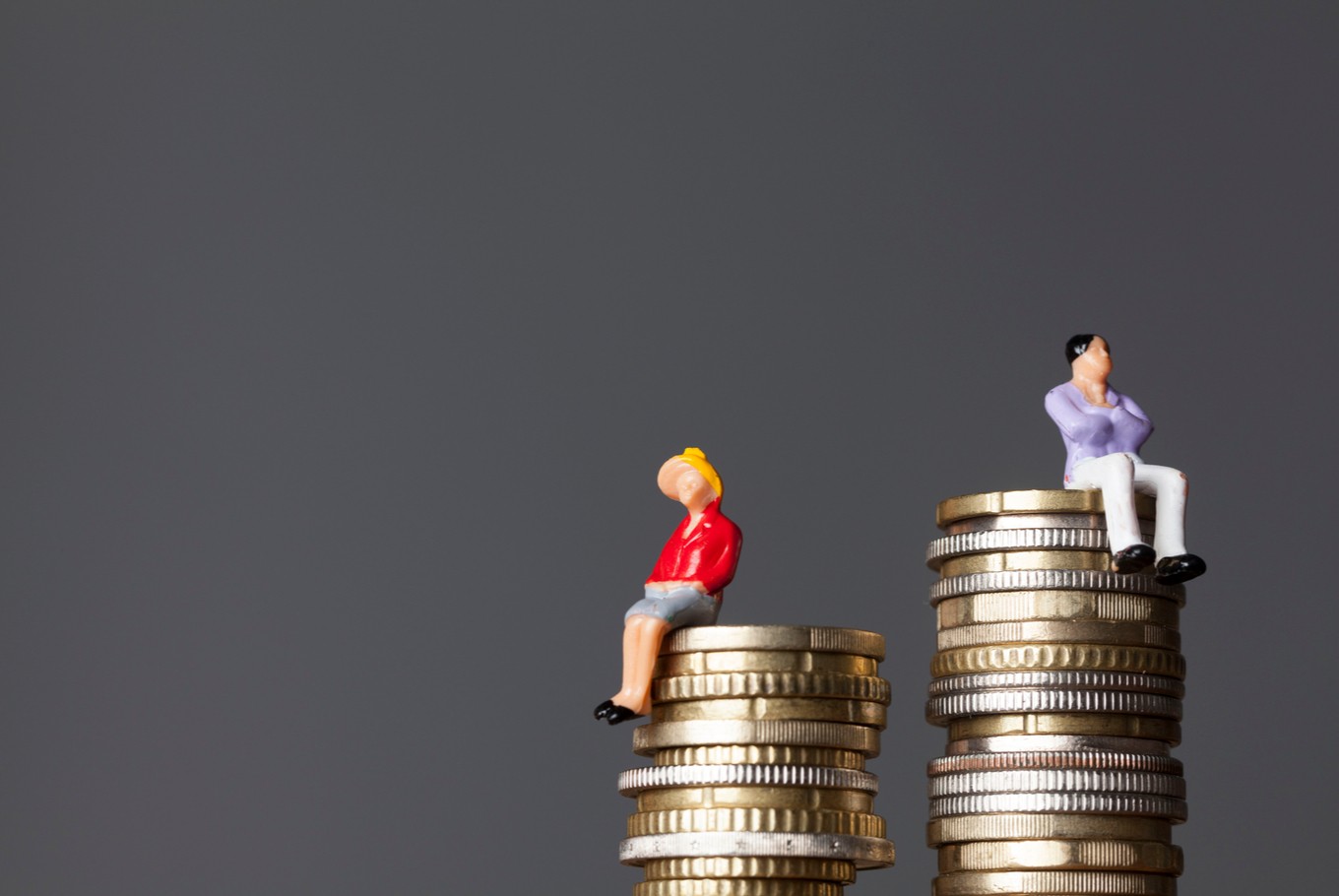Popular Reads
Top Results
Can't find what you're looking for?
View all search resultsPopular Reads
Top Results
Can't find what you're looking for?
View all search resultsMaintaining progress on gender equality is key to Indonesia’s pandemic recovery
While most people’s lives have been negatively affected by the crisis, our analysis shows that, overall, women’s jobs and livelihoods have proved more vulnerable to the pandemic. We found that globally women account for 54 percent of overall job losses despite comprising 39 percent of the global workforce. Put another way, a woman in work is nearly twice as likely to lose job than a man.
Change text size
Gift Premium Articles
to Anyone
I
ndonesia’s economy has been hit hard by the COVID-19 crisis. The Organization for Economic Cooperation and Development (OECD) predicts that the economy could shrink between 2.8 percent and 3.9 percent in 2020, while Indonesia’s Manpower Ministry expects 5.5 million people will lose their jobs.
The key challenge for policymakers will be how to get people back to work and resume economic growth. Maintaining the country’s progress on gender equality will be key to addressing the impact of COVID-19 and driving the recovery.
Even before COVID-19, global progress towards gender parity had been uneven. According to the McKinsey Global Institute’s Power of Parity research that mapped 15 gender indicators across 95 countries, in many places, progress had stagnated or reversed over recent years.
Indonesia had bucked that trend. The country was successfully bringing more women into work, by far the biggest contributor to gender equality. Women make up around 39 percent of Indonesia’s workforce, an increase from 2014 to 2019 and slightly above the average of 38 percent for the 95 countries tracked.
According to World Bank data, in 2019, 41 percent of those jobs were formal salaried jobs, up from 28 percent in 2000 — a sign that the quality of women’s jobs was improving.
Major challenges remained, but Indonesia’s progress was tangible. In less than a decade, Indonesia has also doubled girls’ enrollment in secondary schools, made rapid progress in reducing maternal mortality, and set a 30 percent quota for female candidates for government, which has helped Indonesia to be of the best performers in Asia Pacific on the representation of women in politics.
Now, COVID-19 and its economic fallout risks reversing these hard-won gains. While most people’s lives have been negatively affected by the crisis, our analysis shows that, overall, women’s jobs and livelihoods have proved more vulnerable to the pandemic. We found that globally women account for 54 percent of overall job losses despite comprising 39 percent of the global workforce. Put another way, a woman in work is nearly twice as likely to lose job than a man.
There are several reasons, in addition to existing gender inequalities, for this disproportionate economic impact on women. Women already do an average of 75 percent of the world’s unpaid care work. The pandemic has significantly increased the burden of unpaid work, and women have borne the brunt of that increase.
Women and men also tend to work in different occupations. Our analysis suggests that women’s jobs are 19 percent more at risk than men’s jobs because women tend to work in sectors negatively affected by the pandemic, such as retail, accommodation and food service. Attitudes about the role of women are also a factor, as are financial and digital access.
The pandemic is thus having a devastating, dual impact on both economics and on gender equality. These twin crises are not distinct from each other. Similarly, solutions to both will be mutually reinforcing.
To understand this better, we looked at the impact on economic growth of taking action on gender equality now, later, and not at all, with a focus on six countries including Indonesia and India. We found that if no action is taken to counter the gender-regressive effects of COVID-19, global gross domestic product (GDP) growth could be US$1 trillion lower in 2030. That would represent a significant hit to economies already struggling to recover from the pandemic.
Conversely, we found that if policy makers make decisions now, in 2020 and beyond, that boost gender equality by 2030, it could add $13 trillion to global GDP. By raising their participation, boosting the hours that women work, and increasing the share of women working in higher productivity sectors, McKinsey Global Institute has found that Indonesia could add $185 billion to GDP by 2030 —10 percent above the gender-regressive scenario.
The research also sent a strong signal on timing. A middle path — taking action on gender equality only after the crisis has subsided rather than now — reduces the potential opportunity by more than $5 trillion. The cost of that delay amounts to three quarters of the total GDP we could potentially lose to COVID-19 this year.
Gender equality is not just an issue for policy makers. Our research found a diversity dividend for companies. Those companies in the top quartile for gender diversity on executive teams were 25 percent more likely to have above-average profitability than those in the bottom quartile.
Companies pulling back on diversity and inclusion may be placing themselves at a disadvantage in terms of resilience and the ability to recover from the current crisis.
The message is clear: The faster policy makers and business leaders push for greater gender equality, even as the COVID-19 crisis continues, the bigger the benefits, not just for gender equality but also for economic growth.
What measures should policy and business leaders consider? Indonesia does not need to reinvent the wheel. Now is the time to double down on progressive gender policies that were working well before the crisis in order to increase the growth dividend they deliver.
Tried and tested tools to boost gender equality include reducing the amount of unpaid work and rebalancing it between men and women, and increasing digital and financial inclusion.
Any drive toward gender parity must include efforts to change entrenched, widespread attitudes about women’s role in society. This is an extremely difficult and complex challenge in Indonesia that will require all stakeholders to play a sustained part.
Interventions to address the economic participation of women must also address broader societal aspects of gender inequality such as safeguarding girls’ education, tackling violence against women, and addressing entrenched views about the role of women.
Importantly, we should not delay. It is time for us all to step up and make gender equality a reality.
---
Oliver Tonby is McKinsey’s Asia chairman and Phillia Wibowo is managing partner in McKinsey’s Indonesia office.










